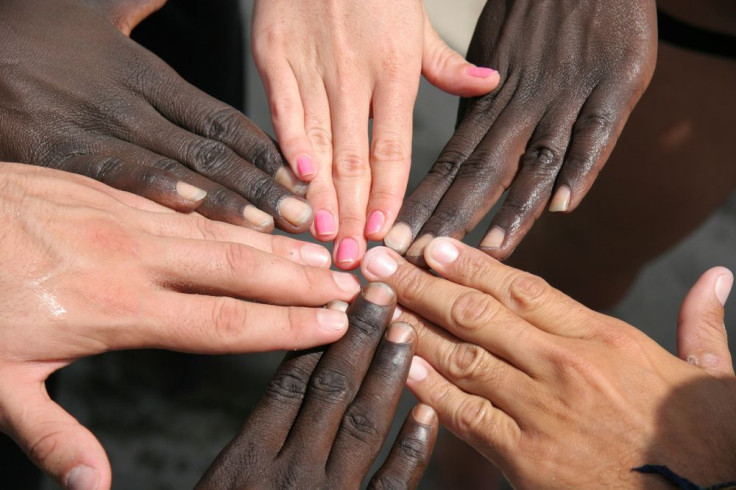Racism In America: Children Who Don't Have The 'Race Talk' Face Negative Psychological Effects

Brain scans have shown that race is the first trait we notice when we meet someone new. For this reason, teaching children to adopt a colorblind mentality toward the idea of race can have negative consequences, a new study suggests. For minority children, this mentality may be especially detrimental to the development of their self-identity.
In 2008, a team of researchers made a surprising discovery: White children in America are so sensitive to the taboo subject of race that they will go to disadvantageous lengths just to avoid acknowledging the subject. Now, in a new study published in Social Psychology and Personality, the same team of researchers explored whether this intense level of colorblindness, or ignoring racial differences, also exists in minority children.
For the study, 108 Latino, Asian, black, and white children between the ages of 9 and 12, who lived near San Francisco, were asked to complete a photo-identification task. According to The Science of Us, the task was similar to the game “Guess Who” in which children are tasked with identifying a mystery person out of a group based only on questions about their appearance. The experimenters mimicked the gender and racial profiles of the teachers in the students' schools in order to ensure the study resembled (as closely as possible) how the topic of race would be addressed in a school environment.
The game was specifically designed so that acknowledging race would immediately eliminate half of the cards. However, despite this clear advantage, results showed that only 40 percent of the minority children asked racially based questions. After the game, the children were asked whether they noticed the races of the individuals on the cards, and if so, why they did not ask about race during the game. Nearly all of the children admitted to noticing the race of the individuals in the identity game. Fifty-eight percent of the children who declined to ask a racially based question explained that they thought doing so would be deemed as “inappropriate, rude, [or] offensive.” Twenty-three percent, meanwhile, said they didn’t mention race during the game because they thought doing so would be considered racist or prejudiced.
According to the researchers, race is an important part of self-identification. Teaching children to purposely ignore this topic can result in negative outcomes, especially in racial minorities who must develop a positive connection between their race and their identity. “What is clear is that they perceive a widespread social norm, at least in a school setting, that race is a topic that should not be discussed,” co-author Kristin Pauker told Medical Daily in an email. “In a real life setting, this could translate into not having important conversations that could support positive identity development, especially in school settings.”
Americans have a history of avoiding uncomfortable, controversial subjects — just look at how we approach sexual education. As a result, racial colorblindness, or treating everyone equal regardless of race, culture, or ethnicity has been adopted as the “most effective” way to end racial discrimination in the U.S. Ignoring race sounds good on paper, and even goes as far back as 1896, when U.S . Supreme Court Judge John Marshall Harlan described the U.S. constitution as “colorblind” in his dissent against racial segregation in the South. Yet, race is socially significant influencing everything from your likeliness to getting called back for a job interview to your chances of going to jail. Past research has shown that a colorblind mentality ignores rather than addresses the issue of racism.
While the researchers agree that there is no easy way to solve the problem of racism in America, teaching children to completely ignore the existence of race seems to do more harm than good. Based on the data, a good place to begin changing America’s attitude toward race is to change how the topic is addressed in school.
“Researchers haven't yet found a good alternative strategy to colorblindness that doesn't also have some drawbacks,” Pauker wrote. “But on a basic level, adults in schools need to be willing to have conversations about race when they matter and encourage actions that show they value diversity.”
Source: Pauker K, Apfelbaum EP, Spitzer B. When Societal Norms and Social Identity Collide The Race Talk Dilemma for Racial Minority Children. Social Psychology and Personality. 2014.



























